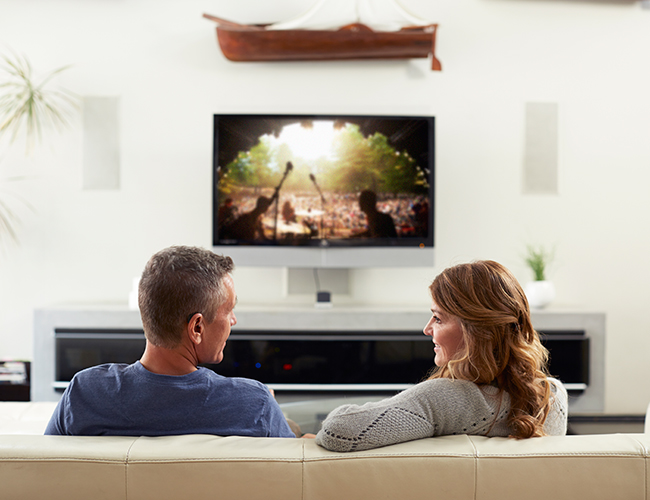Curt Culford, M.Cl.Sc. Aud, Reg. CASLPO Audiologist
“Hey, turn that down! The neighbours don’t need to hear the TV too!”
If someone has said this to you before, you are not alone. While it is usually said in a playful manner, the reality is that many people have difficulty hearing the television and it can be a frustrating topic for families.
Watching television is supposed to be an enjoyable activity. When dialogue becomes unclear or if the actors sound like they are mumbling, there could be something more going on, such as a possible hearing loss. Many people will turn the television volume higher to make it easier to understand. It does not sound loud to them but to others in the room, it is too loud and uncomfortable.
Fortunately, there are ways to improve this situation that do not require purchasing a new TV or watching it in a soundproof room! A comprehensive hearing assessment is the first step. If a hearing loss is present, hearing aids may be prescribed to help the person hear sounds that would not be perceived otherwise.
Hearing aid technology has improved greatly over the years. No longer are hearing aids big, cumbersome devices that fill the entire ear. They are discreet and comfortable while still providing the wearer with clearer sounding speech. The hearing aids are programmed for the person’s specific hearing loss and they can make television viewing enjoyable again.
Depending on the hearing loss and the individual’s specific needs, there are additional options available. There are devices that stream the sound from the TV to the person’s hearing aids, all without the use of wires. This allows the wearer to enjoy direct sound to their ears at their own preferred volume while maintaining the TV volume at a comfortable level for others in the room.
If there is minimal hearing loss and hearing aids are not necessary, a pair of wireless headphones could help with television viewing. They send the audio from the TV directly to the ears, which can be helpful if there is background noise in the room. You could still turn the volume up and not disturb others.
Another useful tool to implement is closed captioning. Closed captions can be turned on through the settings in your TV and will display what is being said on the screen. Captions can be very useful when a hearing loss is present as sometimes being able to read what is spoken can ease the burden of straining to hear.
The television does not have to be a major source of difficulty when it comes to your hearing. Book your free hearing assessment to discover the options available to you. Agreeing on what to watch and who gets to control the television remote; however, are topics for another discussion!


